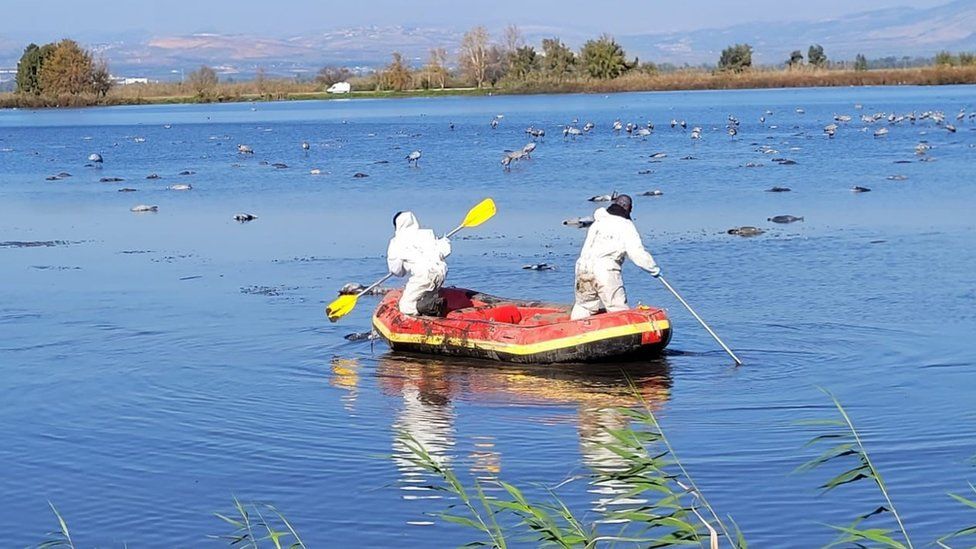Some 5,000 wild cranes have died and hundreds of thousands of chickens and turkeys are being culled.

Image source, Israel Nature and Parks Authority
Tens of thousands of turkeys are being destroyed in Israel, as it tries to contain a serious avian flu outbreak.
More than 5,000 migratory cranes have already died at the Hula Nature Reserve, which Environment Minister Tamar Zandberg called “the worst blow to wildlife” in Israel’s history.
Local farmers were also being forced to cull half a million chickens, prompting fears of a possible egg shortage.
So far no transmission of the A(H5N1) virus to humans has been reported.
However, Prime Minister Naftali Bennett met his national security adviser and other experts on Monday to discuss efforts to stop that from happening.
People who have been in close contact with infected birds are being given preventative treatment.
Although transmission from birds to humans is a rare event, the deaths of 456 people infected with the virus have been reported worldwide since 2003, according to the World Health Organization.
Images published by the Israel Nature and Parks Authority showed rangers in protective suits using a dinghy to retrieve the dead cranes from Hula Lake to prevent other wildlife being infected.
The authority also reported that the remains of 250 cranes had been seen in the surrounding Hula Valley and that 30 sick cranes had been observed elsewhere in the country.
The sight of tens of thousands of cranes from Europe wintering at the Hula Nature Reserve is usually a delight for bird-watchers. But the site was declared off-bounds to visitors last week because of the devastating avian flu outbreak.
Avian flu viruses occur naturally in migratory waterfowl, which tend not to develop symptoms.
Domestic birds are far more susceptible and once the virus is found in commercial or household flocks, rapid destruction is recommended of all birds that might be infected.
Israeli media reported that more than half a million egg-laying chickens at Moshav Margaliot, a communal farm about 12km (7 miles) to the north, were being culled in an effort to contain the outbreak and minimise risk to humans. The moshav provides 7% of all the eggs consumed in Israel.
The Times of Israel said the first outbreak of avian flu in Israel this autumn was reported on 18 October at Moshav Nahalal in the Jezreel Valley, about 60km south-west of the Hula Nature Reserve.
In November, cases were reported at a kibbutz and two poultry farms, it added.

You might also be interested in…
This video can not be played